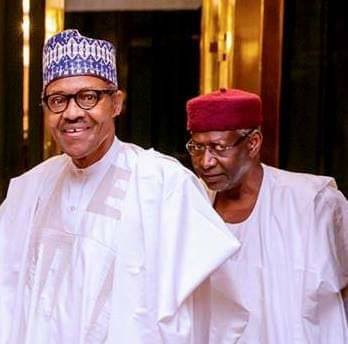Abba Kyari’s Self-Serving Condemnation of Foreign Intervention
Farooq A. Kperogi
Friday, February 15, 2019
Abba Kyari’s Self-Serving Condemnation of Foreign Intervention
School of Communication & Media
Kennesaw State University
Cell: (+1) 404-573-9697
Personal website: www.farooqkperogi.com
"The nice thing about pessimism is that you are constantly being either proven right or pleasantly surprised." G. F. Will
Okey Iheduru
“Extraversion, vulnerability to donors, and political liberalization in Africa”
Caryn Peiffer Pierre Englebert
African Affairs, Volume 111, Issue 444, 1 July 2012, Pages 355–378, https://doi.org/10.1093/afraf/ads029
Published: 01 July 2012
Abstract
In seeking to maintain their power, many African regimes rely on strategies of extraversion, converting their dependent relations with the external world into domestic resources and authority. This article assesses the relationship between extraversion and political liberalization, a dimension of African democratization that has been somewhat underappreciated in recent empirical studies. African countries vary in their extraversion portfolios, or the dimensions of their relations to the outside world that they can instrumentalize, and these variations correspond both to different degrees of vulnerability to the demands of foreign donors and to different preferences from the donors themselves. We find four quantitative measures of extraversion vulnerability to be statistically associated with the initial transitions of the 1989–1995 period and with the ‘consolidations’ at different levels of democracy observable between 1995 and 2011. These findings shed new light on both democratic and hybrid regime trajectories in Africa.
African Affairs (2000), 99, 217-267
“AFRICA IN THE WORLD: A HISTORY OF EXTRAVERSION”*
JEAN-FRANÇOIS BAYART
AFRICA SOUTH OF THE SAHARA is often said to be the limbo of the international system, existing only at the outer limits of the planet which we inhabit. But, again according to a widespread opinion, it is unlikely that Africa is a limbo in the sense of Roman Catholic theology that is to say, a place where souls are prepared for redemption. 'Africa has remained cut off from all contacts with the rest of the world; it is the land of gold, for ever pressing in upon itself, and the land of childhood, removed from the light of self-conscious history and wrapped in the dark mantle of night', wrote Hegel.l The vast literature produced by journalists and academics which refers ad nauseam to the marginalization of the sub-continent, or to its 'disconnection', even if it is only 'by default',2 does no more than reproduce Hegel's idea that this part of the globe is an 'enclave', existing in 'isolation' on account of its deserts, its forests and its alleged primitiveness. For those who subscribe to this school of thought, the spread of war as a mode of political regulation over the last decade or so is a sign that the day of salvation is yet far off. Evidence is offered by those terrible messengers, the handless amputees produced by war in Sierra Leone, the Danteesque inferno of the genocide of Rwandan Tutsis in 1994, or the spread of the AIDS pandemic, a sinister companion of conflict, which decimates those populations which war has spared. Nevertheless, if we are to stay with the metaphor of limbo, it is above all in a limbo of the intellect that such a simplistic view of the relation of Africa with the rest of the world is conceived. For the sub-continent is neither more nor less than a part of the planet, and it is pointless to pretend that, to quote one French former colonial governor,3 it leads a 'traditional existence shielded from the outside world, as though it were another planet', which passively absorbs the shock of having been made dependent on other parts of the world.
--
Listserv moderated by Toyin Falola, University of Texas at Austin
To post to this group, send an email to USAAfric...@googlegroups.com
To subscribe to this group, send an email to USAAfricaDial...@googlegroups.com
Current archives at http://groups.google.com/group/USAAfricaDialogue
Early archives at http://www.utexas.edu/conferences/africa/ads/index.html
---
You received this message because you are subscribed to the Google Groups "USA Africa Dialogue Series" group.
To unsubscribe from this group and stop receiving emails from it, send an email to usaafricadialo...@googlegroups.com.
For more options, visit https://groups.google.com/d/optout.
Just published “The African Corporation, ‘Africapitalism’ and Regional Integration in Africa” (September 2018). DOI: https://doi.org/10.4337/9781785362538.
Farooq A. Kperogi
School of Communication & Media
Kennesaw State University
Cell: (+1) 404-573-9697
Personal website: www.farooqkperogi.com
"The nice thing about pessimism is that you are constantly being either proven right or pleasantly surprised." G. F. Will
segun ogungbemi
Salimonu Kadiri
Skickat: den 16 februari 2019 05:44
Till: USAAfrica Dialogue
Ämne: USA Africa Dialogue Series - Abba Kyari’s Self-Serving Condemnation of Foreign Intervention

